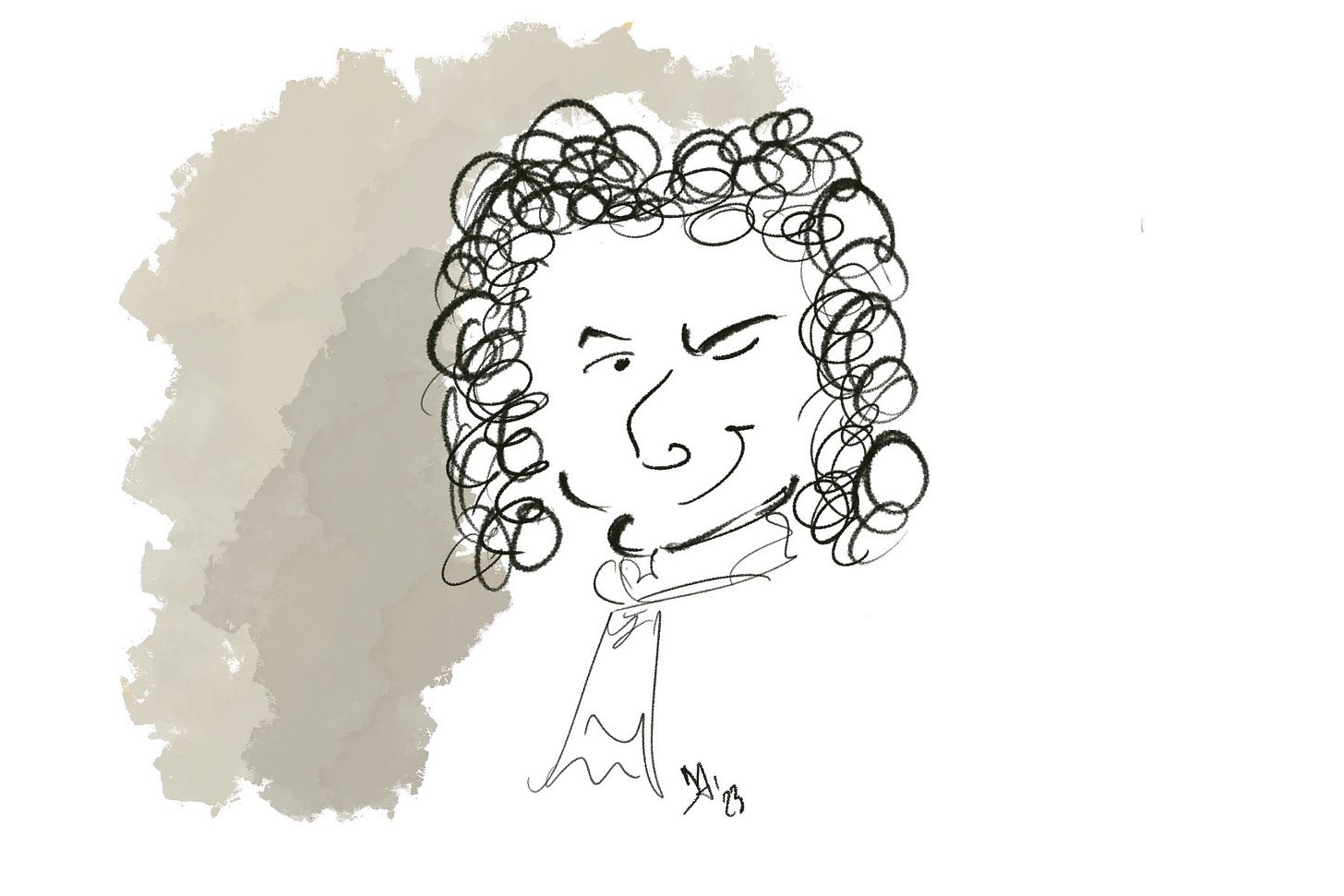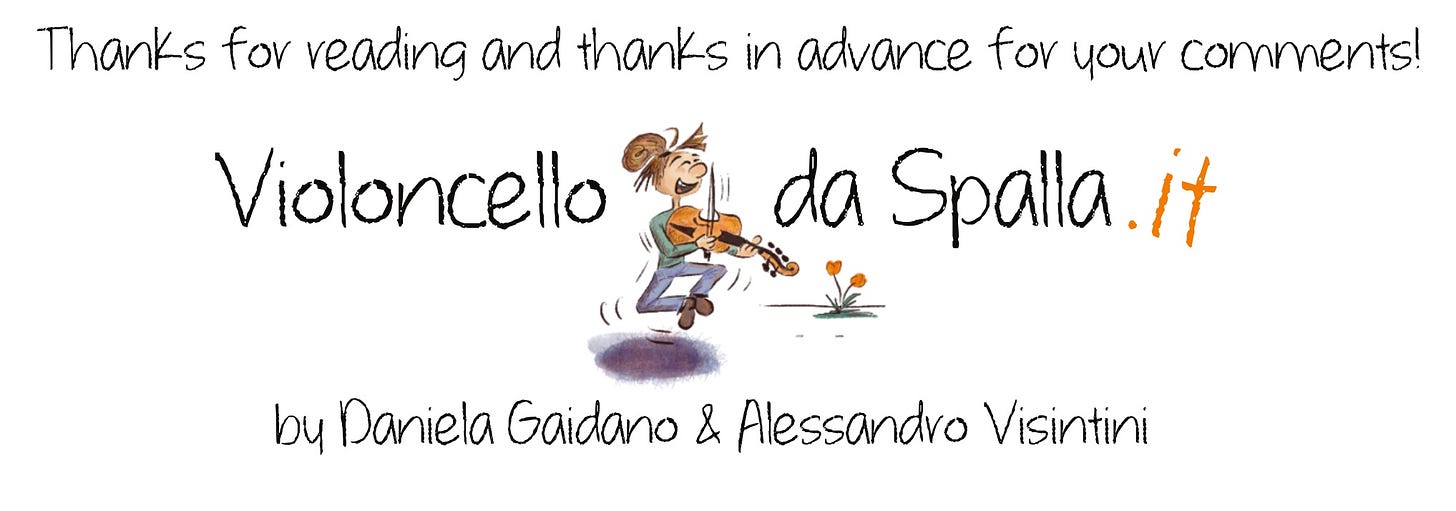Bach Cantatas with violoncello piccolo - part 9
BWV 49. A two years cycle closes with a wink!
After BWV 175, five months and a half pass before Bach uses the violoncello piccolo again in a cantata. If it is a lack of good enough performers or a lack of interest, we cannot know. Unlikely as it seems, it could also be frustration about the poor quality of bass strings. In fact, BWV 49 is the part that employs a smaller range. Both C and G strings are never touched.
This cantata was written for the 20th Sunday after Trinity, the same occasion as the first one employing cello piccolo, BWV 180 in 1724. It was first performed on the 3rd of November, 1726.
It is purely my imagination, but I have an idea of a development of the use of the cello piccolo that started with it played horizontally by violinists and occasionally used, then it had a moment of enthusiasm played between legs (or on the lap) by a visiting cellist or gambist between Easter and Pentecost 1726, but abandoned after that because of technical frustration. Bach, in this period, was often complaining to the town majors about the lack of funds to pay for professional musicians for his cantatas. He could afford to employ almost only students because the professionals preferred working for Telemann at the opera, where they got the best salaries and visibility.
The obbligato part of the BWV 49 doesn’t come from research of new colours or the intention of intriguing the audience using new instruments but for a purely musical and expressive need. It is a melodic part that duets with the oboe d’amore, and also, the continuo joins and shares the rhythmical variety of the other parts.

The duet here is between Jesus and the soul, but the character of the text and the music is erotic. Notable here are the colours of the two instruments chosen: violoncello piccolo and oboe d’amore are not explicit and never vulgar, but winking, insinuating but always joyful, elegant and respectful.
The comparison that comes to my mind here is bold, but when listening and comparing BWV180 and 49, two cantatas written for the same occasion and both employing the violoncello piccolo, but so different in character and energy… I cannot help thinking of Falstaff, the last opera by Giuseppe Verdi. The only “musical comedy” written by Verdi after so many masterpieces, all dramas and tragedies. It ends with a fugue:
Below, at 1:03:43, Ryo Terakado on Violoncello da Spalla, conducted by Masaaki Suzuki, Bach Collegium Japan.
News from da Spalla world
If you are not in yet, join the Da Spalla Enthusiasts Facebook group. In the first week, we had 107 new members and 33 new conversations, some really informative and engaging!
In one post, Nick Wright brought to our attention this video:
for more comments, join the group and look for the conversation there!
Updates from our workshop
This was not a great week, as, on Tuesday, the heating at home broke. We had technicians coming and going until today (Saturday morning), and now we hope it’s fixed! Not only we lost time finding and following technicians, but the new dog was scared and shocked by all these people coming and going and making noise that he messed up several rooms in the home, especially my studio! I was lucky and nothing got damaged.

Featured video of the week
Let us stay with Bach another few minutes! Daniel Bayle and his ensemble, enjoy!




